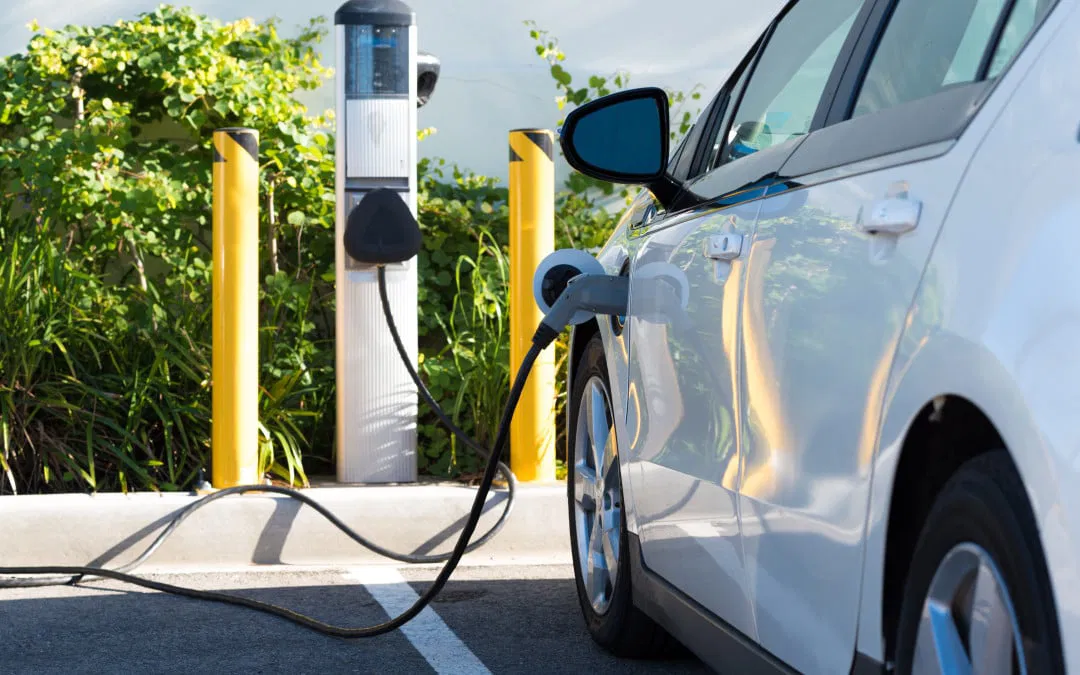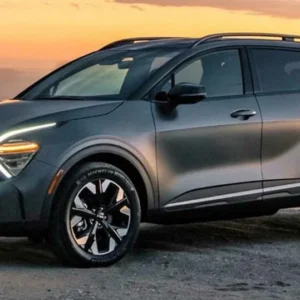In this comprehensive article, we’ll explore the world of Smart Cars, covering everything from the latest innovations in autonomous driving to leading companies like Tesla, Audi, and Mercedes-Benz. As technology advances, smart cars have become one of the most exciting innovations in the automotive industry. Imagine being able to drive to work or return home tired, with the car taking over the journey while you relax. We’ll dive deep into the features, history, and future of smart cars, along with pricing comparisons for the USA, Canada, and the EU.

1. Introduction to Smart Cars
Smart cars are considered one of the greatest inventions of modern times. Car manufacturers are teaming up with tech giants to create autonomous vehicles that can drive without any human intervention. These cars come equipped with advanced safety features, aiming to minimize accidents and eventually eliminate the need for a driver.
Despite past incidents involving self-driving cars, companies remain committed to perfecting this technology, aiming for a future where cars can be driven with eyes closed, offering a safer and more comfortable experience.
2. Stuttgart, Germany: The Hub of Smart Car Innovation
Stuttgart, Germany, has become a focal point for smart car development. German automakers like Mercedes-Benz have set ambitious goals to lead the market with their autonomous vehicles. The new Mercedes S-Class will be equipped with Level 3 autonomous driving technology, making it one of the most advanced self-driving cars available.
Mercedes-Benz Innovations:
- Level 3 Autonomy: Allows the car to drive independently for extended periods, but the driver must be ready to take control if needed.
- Advanced Safety Systems: Includes automatic braking, lane-keeping assist, and pedestrian detection.
- AI Integration: Mercedes has incorporated AI-powered features to enhance the driving experience.
While Germany has approved the use of Level 3 autonomous systems, regulatory challenges remain in the United States, delaying widespread adoption.3. Audi: Leading the Way with Autonomous Driving
Audi has outpaced its German competitors by launching the world’s first car equipped with Level 3 autonomous technology — the Audi A8. This level of autonomy allows the vehicle to drive itself under certain conditions, while the driver can relax but must stay alert in case of a warning.
Key Features of Audi’s Smart Cars:
- Traffic Jam Pilot: Allows the car to take control during traffic congestion, reducing driver stress.
- Partnership with Huawei: Audi has partnered with the Chinese tech giant Huawei to develop cutting-edge smart car features, including Level 4 autonomy.
- Data Center Integration: The Audi Q7 now features Huawei’s mobile data center, using AI chips, central processors, cameras, and radar sensors to enhance self-driving capabilities.
The future of Audi’s smart cars looks promising, with plans to introduce fully autonomous driving systems that require no human intervention from start to finish.
4. Tesla: A Pioneer in Self-Driving Electric Cars
Tesla, the American electric vehicle giant, has been a leader in developing smart cars and self-driving technology. Founded in 2003 by Martin Eberhard and Elon Musk, Tesla was the first company to mass-produce electric vehicles, starting with the Roadster in 2008.
Tesla’s Electric Models:
- Model S: A luxury sedan with a driving range of up to 405 miles.
- Model X: A luxury SUV offering a range of 370 miles.
- Model 3: A mid-size sedan with a range of 353 miles.
- Model Y: A compact SUV with a range of 330 miles.
Advanced Tesla Technologies:
- Full Self-Driving (FSD): Tesla’s FSD system allows for autonomous driving under specific conditions, including highway driving and parking.
- Entertainment System: Features a state-of-the-art infotainment system with navigation and entertainment options.
- Safety Systems: Includes automatic emergency braking, lane departure warning, and advanced collision avoidance.
Tesla’s Performance:
The Tesla Model S is known for its incredible acceleration, going from 0 to 60 mph in just 2.1 seconds.
5. Smart Car Pricing: USA, Canada, and EU Comparison
Let’s look at the average prices for smart cars across different regions, including popular models from Tesla, Audi, and Mercedes-Benz.
| Model | USA (USD) | Canada (CAD) | EU (EUR) |
|---|---|---|---|
| Tesla Model 3 | $46,000 | CAD 62,000 | €48,000 |
| Audi A8 | $90,000 | CAD 120,000 | €85,000 |
| Mercedes S-Class | $110,000 | CAD 145,000 | €100,000 |
| Tesla Model S | $120,000 | CAD 160,000 | €115,000 |
Pricing Notes:
- The USA offers competitive pricing due to local manufacturing and incentives for electric vehicles.
- Canada has higher prices due to import duties and taxes.
- The EU market reflects import costs and higher taxes, particularly on luxury models.
6. Future Trends in Smart Car Technology
The future of smart cars is filled with exciting advancements. Leading automakers and tech companies are collaborating to push the boundaries of what’s possible with autonomous driving.
Upcoming Innovations:
- Level 4 Autonomy: Cars will be able to drive themselves from start to finish without human input, offering a true self-driving experience.
- AI-Powered Systems: Increased use of AI for decision-making, enhancing safety and efficiency.
- Connected Vehicles: Cars will communicate with each other and with traffic infrastructure, reducing congestion and improving road safety.
- Electric and Autonomous Vehicles: The combination of electric powertrains and autonomous driving will lead to more sustainable and efficient transportation.
Tesla’s Vision:
Tesla plans to launch several new vehicles, including the Tesla Cybertruck, a futuristic electric pickup, and the Tesla Model S Plaid, a high-performance sedan. Elon Musk’s vision includes a fully autonomous vehicle fleet, making transportation safer and more accessible.7. Advantages and Challenges of Smart Cars
Smart cars offer numerous benefits, but some challenges come with the widespread adoption of autonomous vehicles. Let’s take a closer look at the pros and cons of smart cars.
Advantages of Smart Cars:
- Enhanced Safety: Smart cars use advanced sensors, cameras, and AI systems to monitor their surroundings, reducing the risk of accidents. Features like automatic emergency braking, lane-keeping assist, and collision avoidance help protect passengers.
- Reduced Traffic Congestion: Autonomous vehicles can communicate with each other, optimizing traffic flow and reducing congestion. This leads to shorter travel times and a smoother driving experience.
- Convenience and Comfort: With self-driving capabilities, passengers can relax and focus on other tasks during their commute. Long road trips become less tiring, as the car handles most of the driving.
- Environmental Benefits: Most smart cars, such as Tesla models, are electric, reducing carbon emissions and contributing to cleaner air. The combination of electric power and autonomous driving creates a sustainable transportation solution.
- Improved Accessibility: Autonomous cars can offer new mobility options for elderly or disabled individuals who may not be able to drive themselves.
Challenges Facing Smart Cars:
- Regulatory Issues: Governments need to create clear regulations for the use of autonomous vehicles. Differences in laws across countries, such as the USA, Canada, and the EU, can delay the implementation of self-driving technology.
- High Costs: The advanced technology used in smart cars, including AI chips, sensors, and software, makes them expensive. This can be a barrier to widespread adoption, especially in developing markets.
- Security Concerns: Smart cars rely heavily on software and data connectivity, making them vulnerable to cyberattacks. Manufacturers need to implement robust cybersecurity measures to protect user data and vehicle control systems.
- Public Trust and Acceptance: Some drivers remain skeptical about the safety of self-driving cars. Incidents involving autonomous vehicles have raised concerns, making it important for manufacturers to build trust through transparent testing and safety protocols.
- Infrastructure Challenges: Autonomous vehicles require advanced road infrastructure, including smart traffic signals and well-maintained road markings. Developing this infrastructure can be costly and time-consuming.
8. The Role of Artificial Intelligence in Smart Cars
Artificial intelligence (AI) is the backbone of smart car technology, enabling vehicles to understand their environment, make decisions, and adapt to changing conditions on the road.
How AI Powers Autonomous Vehicles:
- Object Detection: AI uses data from cameras, radar, and lidar sensors to identify objects around the car, such as other vehicles, pedestrians, and road signs.
- Decision-Making: AI algorithms analyze the data in real time, making split-second decisions to ensure safe driving. For example, the system can decide when to change lanes or apply the brakes to avoid a collision.
- Machine Learning: Smart cars use machine learning to improve their driving performance over time. By collecting data from each trip, the AI system can learn and adapt, becoming more efficient and accurate.
- Natural Language Processing: AI allows smart cars to interact with drivers using voice commands. This feature enhances the user experience by making it easier to control the infotainment system and navigation.
The integration of AI in smart cars is transforming the driving experience, making vehicles smarter, safer, and more responsive to their environment.
9. Consumer Tips: What to Consider Before Buying a Smart Car
If you’re thinking about purchasing a smart car, there are several factors to keep in mind to ensure you make the right choice.
Buying Tips:
- Evaluate Your Needs: Consider how you plan to use the car. If you primarily drive in the city, a compact smart car like the Tesla Model 3 may be a good fit. For long road trips, a vehicle with a longer range, such as the Tesla Model S, might be better.
- Check the Level of Autonomy: Different smart cars offer varying levels of autonomous driving capabilities. If you want a fully self-driving experience, look for vehicles with Level 4 or Level 5 autonomy, such as future models from Tesla and Audi.
- Consider Charging Options: For electric smart cars, it’s important to have access to charging infrastructure. Make sure there are fast charging stations available in your area, or consider installing a home charger.
- Review Safety Features: Autonomous vehicles come with a variety of safety systems. Look for cars equipped with automatic emergency braking, lane departure warning, and blind-spot monitoring for enhanced protection.
- Compare Prices and Incentives: Smart cars can be expensive, but there are often government incentives available for electric vehicles. Check for tax credits and rebates that can help lower the overall cost.
10. The Future of Smart Cars: What to Expect
The future of smart cars is incredibly promising, with rapid advancements in technology paving the way for new features and capabilities.
What’s Next for Smart Cars?
- Full Autonomy (Level 5): We’re moving towards a future where cars will be capable of driving themselves entirely without human input. This will revolutionize transportation, making it safer and more efficient.
- Integration with Smart Cities: Autonomous vehicles will be a key component of smart city infrastructure, communicating with traffic lights and other vehicles to optimize traffic flow and reduce congestion.
- Electric and Autonomous Fleets: Companies like Uber and Waymo are planning to launch fleets of electric autonomous vehicles, offering ride-sharing services that are eco-friendly and cost-effective.
- Advanced Driver Assistance Systems (ADAS): Future cars will feature even more sophisticated ADAS, providing better support for drivers and enhancing the overall safety of the vehicle.
Learn more about smart car models
Tesla’s Vision for the Future:
Tesla continues to push the boundaries of autonomous driving technology. The company plans to release the Tesla Robotaxi, a fully autonomous vehicle that can operate as part of a ride-hailing service. Elon Musk envisions a world where Tesla cars generate income for their owners when they’re not in use, making car ownership more affordable and sustainable.
The rise of smart cars marks a transformative shift in the automotive industry, bringing together the best of AI, autonomous driving, and electric power. From Mercedes-Benz and Audi to Tesla, leading automakers are shaping the future of transportation with innovative technologies that promise safer, more efficient, and environmentally friendly driving experiences.
This expanded article has covered all aspects of smart cars, from their history and key features to pricing comparisons and future trends. Whether you’re considering buying a smart car or simply curious about the latest developments, it’s clear that the future of driving is autonomous, electric, and driven by technology.
source : Wkipedia







